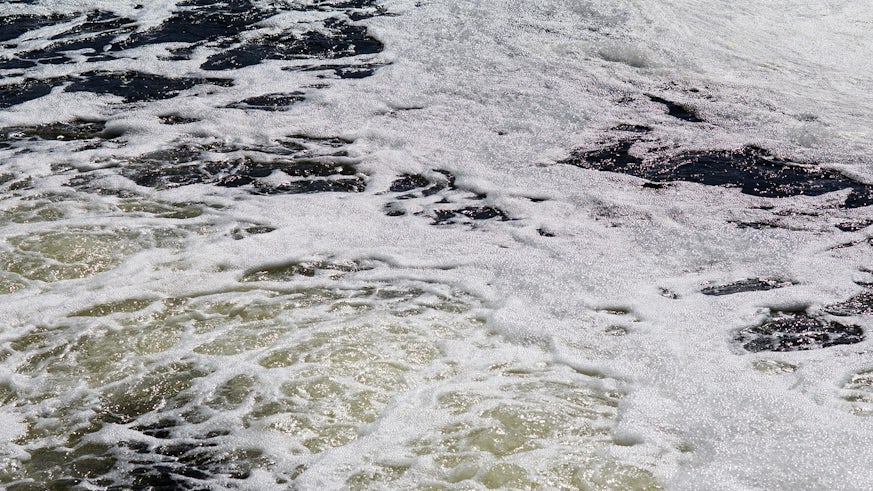Spilling the dirt on Combined Sewer Overflows
19 February 2024

Researchers from Cardiff University are calling for a ban on flushing wet wipes down the toilet in a bid to prevent raw sewage from being spilled into UK waters.
A team of ecologists, engineers, mathematicians, and economists from across the University have worked together to start addressing the challenges of Combined Sewer Overflows and sewage spillage, suggesting short and long-term strategies to ensure cleaner waters in the UK in the future.
As well as wet wipe disposal, the team also suggest reduced water use, improved monitoring schemes, and new investments.
Dr William Perry, an ecologist at Cardiff University’s Water Research Institute, said: “Europe's ageing wastewater system often combines domestic sewage with surface runoff and industrial wastewaters. To reduce the risks of overloading wastewater treatment works during storms, and to prevent wastewater backing-up into properties, Combined Sewer Overflows are designed into wastewater networks to release excess wastewater into rivers or coastal waters without treatment.
“With understandable concern from the public around potential impacts on environments and people from these overflows, we need to better understand these impacts to allow cost-effective solutions."

“Despite this being a very pressing issue, much remains unknown about how much wastewater is being spilled, what that wastewaters contains, and the impact it has on the health of people, ecosystems, and the economy.”
The team set out to understand the issues and to develop a plan to help futureproof sewage systems and prevent sewage from being spilled into UK waters. They reviewed previous research into Combined Sewer Overflows and found a lack of urgently needed estimates, monitoring and studies.
They found that there is an urgent need to establish better estimates of quantity and composition of sewage spills. Not only this, but comprehensive studies on the impact of Combined Sewer Overflows are fundamentally lacking.
Dr Perry said: “We set out to review the actual risk Combined Sewer Overflows pose to people and ecosystems. But we found that our understanding is limited to such an extent, due to a lack of data and monitoring, that it is currently not feasible to properly assess the risk Combined Sewer Overflows have on people and ecosystems.
“It’s vital that monitoring is increased. Addressing these gaps in our knowledge is crucial for prioritizing investments and mitigating risks.”
The researchers developed suggestions of short and long-term solutions for addressing Combined Sewer Overflows. Short-term solutions included improving monitoring and understanding of spill outcomes. Their long-term strategies highlighted fundamental shifts towards holistic wastewater management and upstream interventions to reduce waste entering sewers. This requires collaborative efforts and systemic changes, including exploring decentralized alternatives to traditional wastewater systems.

“Cost is often cited as a limiting factor when it comes to improving sewage infrastructure, but interventions that prevent combined sewer overflow spills will have long-term gains. However, even without major investment, our research outlines the need for changes to policy and consumer behaviour.”
The researchers suggest that banning wet wipes, for example, would help prevent sewage spills through blockages while also reducing plastic pollution. They also highlight consumer engagement work to persuade reduced water use, to reduce the load on the sewage network.

“The UK currently has one of the highest water consumption rates per capita in Europe, but changes in consumer behaviour will only get us so far. To futureproof our sewage systems and prevent raw sewage from being spilled, investment is urgently needed, with innovation required across the entire sewage system, not just combined sewer outflows."
“We will also need broader societal responsibilities for wastewater and better monetisation of solution costs and benefits,” added Professor Isabelle Durance, Director of Cardiff University’s Water Research Institute.


